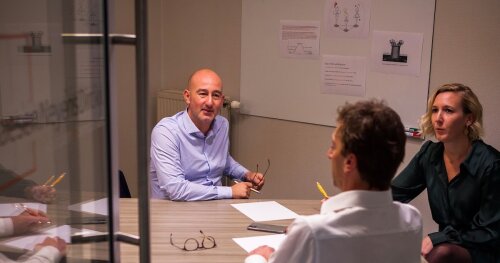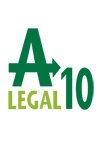Best Child Abuse Lawyers in Bree
Share your needs with us, get contacted by law firms.
Free. Takes 2 min.
Free Guide to Hiring a Family Lawyer
List of the best lawyers in Bree, Belgium
About Child Abuse Law in Bree, Belgium
Child abuse encompasses physical harm, sexual abuse, emotional abuse and neglect. In Bree - a Dutch-speaking municipality in the Limburg province of Belgium - allegations of child abuse can trigger both criminal and civil proceedings. Criminal law addresses acts that may amount to offences under the Belgian Penal Code, while family and youth law focus on the immediate safety and long-term welfare of the child. Multiple public bodies may become involved - local police, the public prosecutor's office - known as the parket - youth welfare services and the youth court. The Flemish regional services for child and family welfare play a role when care or protective measures are needed.
Why You May Need a Lawyer
Cases involving child abuse are often legally and emotionally complex. You may need a lawyer if you are:
- A parent or guardian seeking protection for a child - for example to request emergency removal, a protection order or a change in custody.
- A person reporting suspected abuse who needs help navigating police and youth welfare procedures.
- The alleged victim or a representative wanting to understand criminal procedures, rights during interviews, evidence preservation and possible compensation claims.
- A person accused of abuse who needs criminal defence and guidance around contact with the child and interim measures.
- An institution or professional facing inquiries or civil claims after a report of abuse.
Lawyers experienced in criminal law, juvenile law and family law can explain the procedure, file petitions at court, represent you in hearings, apply for legal aid - known as rechtsbijstand - and coordinate with social and psychological services.
Local Laws Overview
Key legal aspects relevant in Bree include:
- Criminal offences - Physical abuse, sexual abuse, sexual exploitation, grooming and production or distribution of sexual images are offences under Belgian criminal law. The parket investigates suspected crimes and decides whether to bring charges.
- Youth justice - When the alleged perpetrator is a minor, the youth court and juvenile justice procedures apply. The priority is protection and rehabilitation, alongside possible criminal consequences.
- Protective measures - Courts can order protective measures to safeguard the child. This may include temporary removal, placement in child welfare services or supervised contact arrangements.
- Family law - Matters such as parental authority, custody and access can be modified by family courts when a child's safety is at risk.
- Reporting and intervention - Local police and youth welfare services investigate reports. Certain professionals - for example health care workers and educators - have specific professional or statutory obligations regarding suspected abuse, and institutions must cooperate with investigations.
- Legal aid - People with limited means may qualify for state-subsidised legal assistance through local bar associations. Ask about rechtsbijstand when contacting a lawyer.
Frequently Asked Questions
What exactly counts as child abuse in Bree?
Child abuse includes physical injury, sexual acts imposed on a child, emotional maltreatment such as systematic humiliation or isolation, and neglect where a child’s basic needs are not met. Abuse can occur in families, schools, institutions or online. The specific legal classification depends on facts and may lead to criminal charges or family law measures.
How do I report suspected child abuse in Bree?
If a child is in immediate danger call the emergency number 112. For non-urgent reports, contact the local police station in Bree or the public prosecutor's office - the parket - to make an official report. You can also contact regional child protection services or the local municipality social services to request an assessment and support.
What should I do right away to protect the child?
Ensure immediate safety - remove the child from danger and call emergency services if necessary. Preserve evidence by keeping clothing or digital messages secure. Seek medical attention for the child and document injuries. Report the situation to police and child welfare services. If possible, write down what you know while details are fresh.
Will the police automatically remove the child from the home?
Not always. Police and youth welfare services assess risk. If there is an immediate serious danger, authorities can take emergency measures including temporary removal. Otherwise, authorities may open an investigation and recommend protective measures to the court. A lawyer can advise on the likely steps in your case.
Who can make a report or file a complaint?
>Any person who suspects abuse can report it - parents, relatives, neighbours, school staff, health professionals and children themselves. A formal criminal complaint may be filed by the victim or a legal representative, and the parket can pursue prosecution even without a private complaint in serious cases.
Are professionals required to report suspected abuse?
Some professionals have specific duties under professional rules or law to cooperate with investigations and to escalate concerns. The exact obligations can depend on the sector and circumstances. If you are a professional unsure about your duties, consult your employer, professional association or a lawyer for guidance.
What legal protections can be obtained for the child?
Court-ordered protective measures may include temporary placement with family or care services, supervised contact or restrictions on an alleged abuser's contact with the child. In urgent cases, emergency orders can be sought. Criminal proceedings can also lead to restraining orders or sentencing that restricts contact.
What happens if someone is accused of abusing a child?
The parket may open a criminal investigation, which can result in charges. Alleged offenders may be interviewed, subject to bail conditions or interim measures restricting contact with the child. If the accused is a minor, youth justice processes apply and focus on rehabilitation. An accused person should seek legal counsel immediately.
How long does a child abuse case usually take?
There is no fixed timetable. Preliminary investigations, criminal proceedings and family court processes can take weeks to many months, depending on complexity, available evidence, expert reports and court scheduling. Urgent protective measures can be obtained faster, but final resolution often takes longer.
Can I get legal aid to help with a child abuse case?
Yes. Belgium provides state-subsidised legal aid - rechtsbijstand - for people who meet income and other criteria. Legal aid can cover advice, representation and court costs. Contact the local bar association or ask a lawyer about eligibility and how to apply.
Additional Resources
Local and national bodies and organisations that can assist include:
- Local police station in Bree - for reporting and immediate protection.
- Emergency services - call 112 if the child is in immediate danger.
- Parket (Public Prosecutor's Office) in Limburg - handles criminal investigations and prosecutions.
- Youth Court - handles protection orders and juvenile matters.
- Agentschap Opgroeien and regional jeugdhulp services - Flemish agencies involved in youth welfare and care placements.
- OCMW Bree - local social services for immediate social support and referrals.
- CAW - Centrum Algemeen Welzijnswerk - provides victim support and counselling.
- Child Focus - Belgian centre for missing and sexually exploited children - offers specialised support and advice.
- Local bar association - for assistance finding a lawyer and information on legal aid.
- General practitioners, paediatricians and mental health services - for medical examination and psychological support.
Next Steps
1. Immediate safety - If the child is in danger call 112. If not immediately life-threatening, consider making a report to the local police in Bree and contacting youth welfare services to request an assessment.
2. Preserve evidence - Keep any messages, photos, clothing or other items intact and document dates, times and witnesses.
3. Seek medical and psychological care - Arrange a medical exam if abuse is suspected and access support for the child and family.
4. Get legal advice - Contact a lawyer experienced in child protection, criminal law and family law. Ask about legal aid if you have limited means.
5. Cooperate with authorities - Provide information to police and welfare services, but consult your lawyer before making formal statements if you are charged or uncertain about implications.
6. Access support services - Use local social services and victim support organisations for practical and emotional help.
7. Keep records - Maintain a file of reports, medical records, correspondence and court documents to support any proceedings.
Remember - this guide provides general information and does not replace personalised legal advice. Child abuse cases affect safety and wellbeing in urgent ways - when in doubt seek immediate help from emergency services, the local police or an experienced lawyer in Bree.
Lawzana helps you find the best lawyers and law firms in Bree through a curated and pre-screened list of qualified legal professionals. Our platform offers rankings and detailed profiles of attorneys and law firms, allowing you to compare based on practice areas, including Child Abuse, experience, and client feedback.
Each profile includes a description of the firm's areas of practice, client reviews, team members and partners, year of establishment, spoken languages, office locations, contact information, social media presence, and any published articles or resources. Most firms on our platform speak English and are experienced in both local and international legal matters.
Get a quote from top-rated law firms in Bree, Belgium — quickly, securely, and without unnecessary hassle.
Disclaimer:
The information provided on this page is for general informational purposes only and does not constitute legal advice. While we strive to ensure the accuracy and relevance of the content, legal information may change over time, and interpretations of the law can vary. You should always consult with a qualified legal professional for advice specific to your situation.
We disclaim all liability for actions taken or not taken based on the content of this page. If you believe any information is incorrect or outdated, please contact us, and we will review and update it where appropriate.










